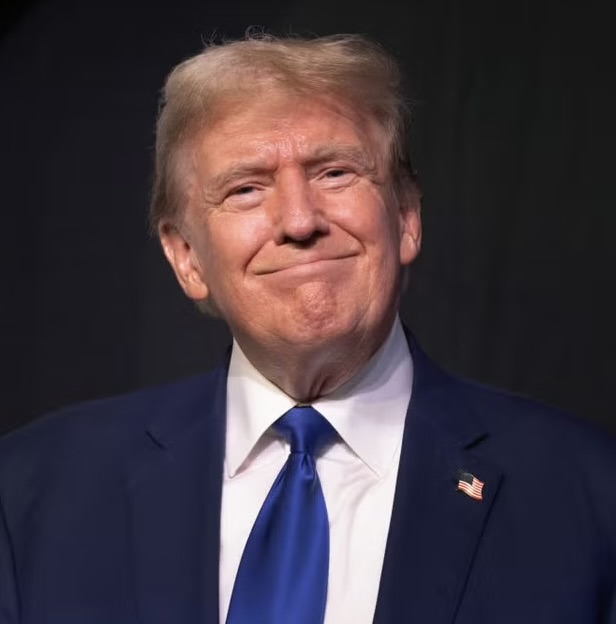Trump Revamps Social Security Following DOGE Scandal, Key Official Resigns, New Leadership Appointed
President Donald Trump has recently initiated significant changes within the federal bureaucracy, marking a bold approach to reform. One of the most notable developments is the resignation of Michelle King, who had served as acting commissioner of the Social Security Administration (SSA) for 30 years. Her departure follows mounting pressure from the Department for Government Efficiency (DOGE), led by Elon Musk, which has been pushing for increased oversight and the modernization of federal agencies.
King’s resignation has been linked to the growing influence of DOGE, which is focused on cutting costs, eliminating fraud, and enhancing efficiency within government operations. As the head of the SSA, King was responsible for overseeing benefits for millions of retirees and disabled Americans. Her departure is seen as a direct result of the push from DOGE to modernize operations and streamline services, which included controversial proposals to access sensitive personal data, such as private records held by the IRS.
In response to King’s resignation, President Trump swiftly appointed Leland Dudek, a veteran of the SSA’s anti-fraud office, as the acting commissioner. Dudek’s appointment ensures that leadership at the SSA will remain steady during this period of transition. In addition, Trump has nominated Frank Bisignano, the president and CEO of Fiserv, to take over as the full-time head of the SSA, pending Senate confirmation. Trump has emphasized that these appointments are aimed at bringing in qualified leaders who will prioritize the American public’s needs over the interests of entrenched bureaucracy.
Elon Musk’s Department for Government Efficiency (DOGE) has become a major force in pushing for reforms across federal agencies. Its mandate is to reduce inefficiencies, modernize government technology, and eliminate waste and fraud. One of DOGE’s most controversial actions has been its attempts to access IRS computer systems, which store sensitive data. This move has sparked significant concerns among privacy advocates who fear the potential for misuse of personal information. Within the SSA, DOGE has focused heavily on scrutinizing spending, particularly in efforts to eliminate fraud. Musk himself has publicly criticized the Social Security system, claiming that fraud is rampant, with payments allegedly being sent to deceased individuals or individuals listed with impossible ages.
The SSA’s new acting commissioner, Leland Dudek, has supported DOGE’s efforts, praising the initiative for its focus on cutting waste and improving government efficiency. However, this aggressive pursuit of reform has drawn sharp criticism from some corners, with opponents arguing that it could jeopardize the privacy of Americans. While DOGE’s push for increased transparency and accountability is aimed at curbing fraud, its methods have raised concerns about the balance between efficiency and privacy protection.
Trump’s restructuring of the SSA is part of a broader agenda to reduce government spending and improve productivity within federal agencies. Since returning to office, Trump has signed a flurry of executive orders aimed at addressing what he perceives as systemic inefficiencies and waste within the government. These efforts have not come without controversy, as political opponents argue that such measures are more about advancing a political agenda than genuinely improving government operations.
In addition to the shake-up at the SSA, Trump’s administration has faced criticism from figures like Senate Majority Leader Chuck Schumer, who recently pointed to cuts in the Federal Aviation Administration (FAA) as a contributing factor in a deadly airline crash in Toronto. Trump’s administration has firmly denied these allegations, calling them politically motivated. The dispute over FAA staffing levels highlights the broader debates over government efficiency and public safety that have become increasingly polarized in recent years.
Despite the controversies, President Trump’s approval ratings have remained relatively steady, with some polls showing signs of stabilization. Survey results from organizations like SurveyUSA and Morning Consult suggest that Trump’s approval hovers around 50%, with some polls even indicating positive ratings. These figures reflect a divided but engaged electorate, with the public continuing to assess Trump’s efforts to reform government bureaucracy and reduce spending.
Looking ahead, the appointment of Frank Bisignano as the new head of the SSA is expected to be a key development in the ongoing efforts to overhaul federal agencies. Bisignano’s background in the private sector and his experience leading a large financial services company make him an intriguing choice to lead the SSA. Supporters of the administration hope that his leadership will bring about lasting improvements in the efficiency and effectiveness of the SSA, restoring public trust in Social Security services.
As the administration’s reform efforts continue, questions remain about the long-term effects of these initiatives on government operations, privacy, and the broader political landscape. While proponents of government efficiency argue that these bold reforms are necessary, critics warn that the potential risks to privacy and personal data are too great. The coming months will be crucial in determining whether these changes lead to meaningful improvements or if they exacerbate existing political divisions and concerns about government oversight.
